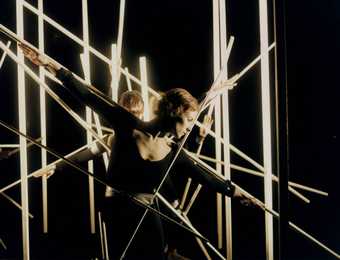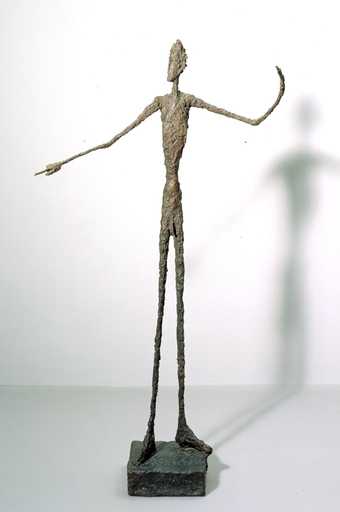3 rooms in The Tanks
Daria Martin’s film In the Palace shows four performers holding poses within a cage-like structure
‘The relationship between film and sculpture is an interesting paradox... it’s a relationship that doesn’t quite work. That not-quite-working can generate an emotional tension.’
– Daria Martin
Daria Martin’s film In the Palace shows four performers holding poses within a cage-like structure. The set is a large-scale reproduction of artist Alberto Giacometti’s sculpture The Palace at 4 a.m. from 1932. As Martin explains, the film began as ‘a daydream’ about what it would be like to enter Giacometti’s work. ‘It was quite a shock, months later, to finally stand inside the 25-foot-high version that I built with my art-school friends.’
The camera circles around the Giacometti-inspired set. Inside, performers recreate poses from early-20th-century dance productions. Martin describes the art and dance of this period as ‘open to the contamination of humour, exaggeration, pathos, play, and awkwardness’. Accompanied by the sounds of birdsong and rain, Martin’s film creates a dream-like setting that reestablishes the connections between early-20th-century artforms and the human body. In the artist’s words: ‘In a way, the film projection ... is like a maquette or model: physical space and action has been compressed, but the on-screen images hold the potential, in the imagination, to expand into an entire world, to spring to life.’


